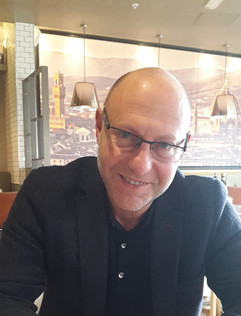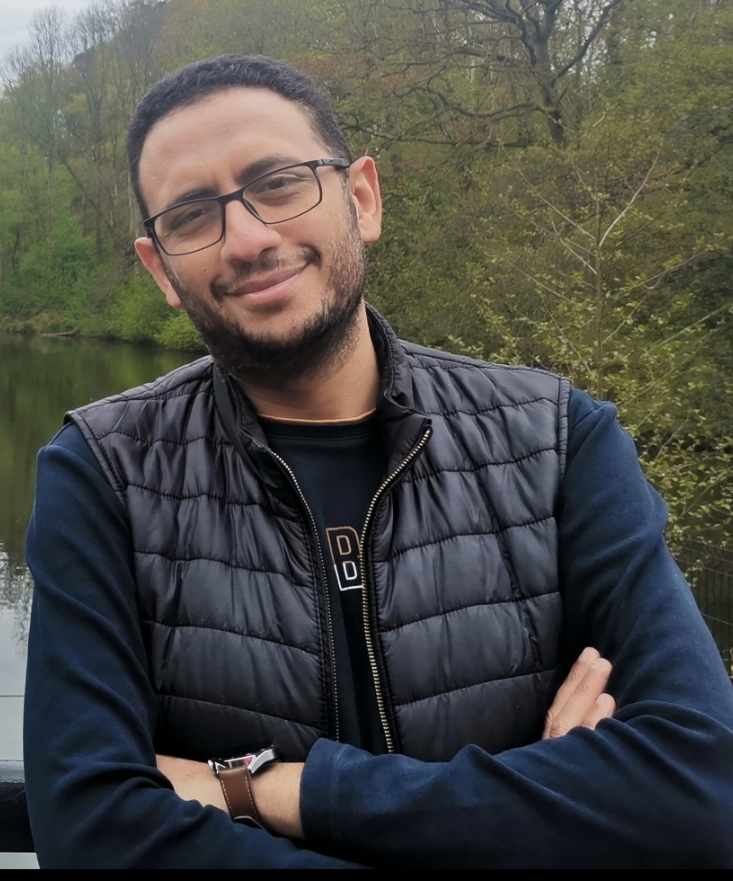ICMSN 2025 Speakers
Keynote Speaker I

Prof. Alexander M. Korsunsky
Trinity College, University of Oxford, UK
Biography: Alexander Korsunsky received his degree of Doctor of Philosophy (DPhil) from Merton College, Oxford, following undergraduate education in theoretical physics. His current appointment is Professor of Engineering Science at the University of Oxford and Trinity College. He has given keynote plenaries at major international conferences on engineering and materials. He has developed numerous international links, including visiting professorships at Universitá Roma Tre (Italy), ENSICAEN (France) and National University of Singapore. Prof Korsunsky’s research interests concern developing improved understanding of integrity and reliability of engineered and natural structures and systems, from high- performance metallic alloys to polycrystalline ceramics to natural hard tissue such as human dentin and seashell nacre. Prof Korsunsky co-authored books on fracture mechanics (Springer) and elasticity (CUP), and published over 200 papers in scholarly periodicals on the subjects ranging from neutron and synchrotron X-ray diffraction analysis and the prediction of fatigue strength to micro-cantilever bio-sensors, size effects and scaling transitions in systems and structures. Support for Prof Korsunsky’s research has come from EPSRC and STFC, two major Research Councils in the UK, as well as also from the Royal Society, Royal Academy of Engineering (RAEng), NRF (South Africa), DFG (Germany), CNRS (France) and other international and national research foundations. Prof Korsunsky is a member of the editorial board of Journal of Strain Analysis published by the Institution of Mechanical Engineers, UK (IMechE). Prof Korsunsky is consultant to Rolls-Royce plc, the global aeroengine manufacturer, whom he advises on company design procedures for reliability and consistency. He spent a period of industrial secondment at their headquarters in Derby, UK (supported by RAEng), and made recommendations on R&D in structural integrity. Prof Korsunsky plays a leading role in the development of large scale research facilities in the UK and Europe. He is Chair of the Science Advisory Committee at Diamond Light Source (DLS) near Oxford, UK, and Chair of the User Working Group for JEEP (Joint Engineering, Environmental and Processing) beamline at DLS. These activities expand the range of applications of large scale science to problems in real engineering practice. Prof Korsunsky’s research team at Oxford has involved members from almost every part of the globe (UK, FR, DE, IT, China, India, Korea, Malaysia, South Africa).
Invited Speaker I

Prof. Ludmila Kucerova
University of West Bohemia, Czech Republic
Biography: Ludmila Kučerová received her PhD degree in Mechanical Engineering in 2006 for her work on advanced high-strength TRIP (transformation-induced plasticity) steels at the University of West Bohemia in Pilsen (UWB), Czech Republic. She continued the research at the Research Centre of Forming Technologies, and since 2011, she has been the Head of the Laboratory of Metallography at the Regional Technological Institute. She became a professor at UWB in 2022 and is currently Head of the Department of Materials Science and Technology at the Faculty of Mechanical Engineering of the UWB. Her research interests include research of metals and novel processing technologies such as additive manufacturing, concentrating on the relationship between processing parameters, the final microstructure and mechanical properties of advanced materials. In recent years, she has also been working on developing complex concentrated alloys for hydrogen storage and high-temperature applications. She is the author of three patents, six verified technologies and around 100 articles registered at WoS.
Invited Speaker II

Assoc. Prof. Nader Shehata
Kuwait College of Science and Technology, Kuwait
Biography: Dr Nader Shehata is a physics associate professor at Kuwait College of Science and Technology (KCST). He was a Lecturer of Electronic Engineering at Ulster University. In addition, he is on sabbatical leave from Alexandria University, Egypt, where he is a physics professor and associate director of centre of Smart Materials, Nanotechnology, and Photonics (CSMNP). Also, he is an adjunct associate professor at Faculty of Science, Utah State University, United States. Over more than ten years, Dr Shehata has excellent teaching experience in both undergraduate and graduate modules in engineering physics and electric engineering disciplines. In research, he works in the fields of nanostructures synthesis, characterization, and correlated applications in piezoelectric energy harvesting, environmental sensing, solar cells, and biomedicine. He secured around 2.1M US Dollars of research grants from different international and local funding agencies, along with more than 70 journal publications with most of them published in Q1/Q2 journals and more than 20 international conference appearances including invited talks, oral presentations, poster sessions, and proceedings. Furthermore, he is an editor-in-chief and topical guest editor in different nanotechnology journals with two edited books, few edited book chapters, and reviewer for different funding agencies and journals. Also, he is a senior member in IEEE and a fellow with UK Higher Education (FHEA).
Invited Speaker III

Assist. Prof. Tianhong Gu
Xi’an Jiaotong – Liverpool University, China
Biography: Tianhong Gu received her M.Phil. in Materials Science and Metallurgy from the University of Cambridge in 2014, followed by a Ph.D. in Materials Science from Imperial College London in 2018. Presently, she is an Assistant Professor in Materials Science and Engineering at XJTLU. Previously, she was a Research Associate (2018 - 2021) at Imperial College London and a Research Fellow (2021 - 2022) at the University of Birmingham. Her research interests include electronic interconnect solder alloys in semiconductor advanced packaging and superalloys (W, Ti, Ni, HEA) in aero-engine and nuclear fusion applications. She is a specialist in experimental micromechanics using advanced materials characterisation techniques in understanding micromechanical deformation and microstructure of metals and alloys, and in developing in-situ microscope methods and analysis. In recent years, she has focused on additive manufacturing research on superalloys such as Ni and Ti-based metamaterials using the 3D printing method. She also holds memberships of professional bodies such as RMS (Royal Microscopical Society), TMS (Minerals, Metals & Materials Society), IOM3 (Institute of Materials, Minerals and Mining), and MRS (Chinese Materials Research Society).
Invited Speaker IV

Prof. Mohammed Al-Hashimi
Hamad Bin Khalifa University, Qatar
Texas A&M University Qatar, Qatar
Biography:
Dr. Mohammed Al-Hashimi is a Professor of Chemistry at the
College of Science and Engineering at HBKU with an extensive
background in both academic and industrial settings. He earned
his MSci Honors degree in Pharmaceutical Chemistry in 2003 and a
PhD in 2007 from Queen Mary University of London, UK. Following
his doctoral studies, Dr. Al-Hashimi worked as a Senior
Development Chemist at Evotec in Oxfordshire, UK, and later
joined the Chemistry department at Imperial College London as a
postdoctoral researcher. In 2012, he transitioned to Qatar
University as an Assistant Professor before joining Texas A&M
University at Qatar in 2013.
Dr. Al-Hashimi’s research focuses on the design and synthesis of
organic semiconductor materials for optoelectronic applications,
including field-effect transistors, photovoltaic devices,
light-emitting diodes, and sensors. His expertise also extends
to the synthesis of recoverable and reusable homogeneous and
heterogeneous catalysts. Currently, he supervises a research
team of six postdoctoral research assistants and twelve
undergraduate students, with funding from the Qatar National
Research Fund.
With over 100 peer-reviewed publications, and five patents, Dr.
Al-Hashimi’s contributions have been widely recognized. Among
his many accolades are the Donald C. Bradley Prize, ASPIC Prize,
Lefevre Prize, ACMME Research Prize, and the TAMUQ Faculty
Research Excellence Award. He was recently named a Fellow of the
Royal Society of Chemistry (FRSC).
https://www.hbku.edu.qa/en/staff/dr-mohammed-al-hashimi
